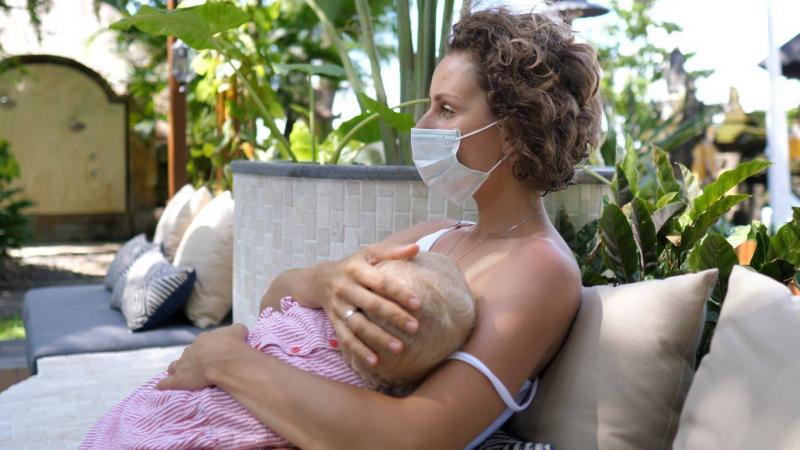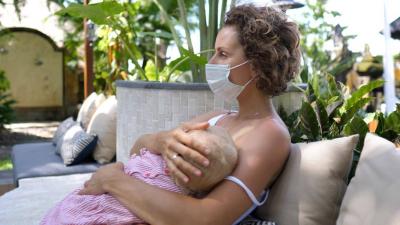New mothers frequently ask whether it is safe to breastfeed their babies if they are infected with COVID-19 and if receiving the COVID-19 vaccine is advisable during breastfeeding. Dr. Lawrence Grummer-Strawn, a technical officer focused on improving infant and child nutrition globally at the World Health Organization, addresses these questions in episode 51 of the program "Science in 5," presented by Vismita Gupta Smith and broadcast by the WHO through its official website and social media accounts.
Regarding mothers infected with COVID-19, Dr. Lawrence stated that mothers are indeed very concerned about the health of their newborns as well as their own health. However, it is also important for them to know that the WHO encourages breastfeeding due to its multiple benefits and that breast milk itself does not serve as a means of transmitting the virus to the infant. He noted that there may be worries about mothers caring for their babies and being in close proximity while breastfeeding.
However, "what scientists have actually found is that the risks of transmitting the infection to the child are very low, and if the baby does contract the virus, COVID-19 infections in newborns are usually very mild. Thus, breastfeeding for mothers infected with COVID-19 does not pose a significant health risk to their child."
On the other hand, Dr. Lawrence added that the slight risks should be weighed against the drawbacks of losing the benefits of breastfeeding, emphasizing the critical importance of continuing efforts to protect the infant from various other diseases that can arise if they do not receive breast milk. Analytical studies on the losses incurred from stopping breastfeeding in such cases have shown that the benefits of breastfeeding far outweigh the potential risks of infection transmission.
Dr. Lawrence explained that a mother infected with COVID-19 would certainly want to do everything she can to protect her child from transmission, even though the risk is small. Therefore, following preventive measures for the rest of the family can ensure the newborn's protection, starting with wearing face masks and washing hands frequently, as well as using alcohol-based wet wipes and similar products. She can continue to have contact with her child, as it is important for the baby to be in touch with the mother, while remembering to adhere to basic precautions to prevent transmission to those around her.
Regarding the safety of breastfeeding mothers receiving the COVID-19 vaccine, Dr. Lawrence said that based on all available evidence from the WHO, getting vaccinated is a safe action for breastfeeding mothers, to the extent that WHO experts and scientists strongly recommend it. He added that vaccination is important for the mother's health to protect her from COVID-19 so she can best care for her family and avoid severe illness.
Dr. Lawrence stated, “There is no evidence that the vaccine allows for the transmission of the virus to the child. Additionally, there is no reason to believe that the vaccine is less effective in breastfeeding mothers compared to non-breastfeeding mothers.” Therefore, it is recommended that breastfeeding mothers get vaccinated as soon as they have the opportunity to protect themselves and their surrounding community.
Continuing with his advice, Dr. Lawrence stated that the WHO recommends mothers start breastfeeding within the first hour after their babies are born and continue breastfeeding for up to two years or longer, as long as it is desired for both the mother and the child. He noted that during the first six months, it is recommended that the baby receives no food other than breast milk, after which complementary foods can be introduced.
Dr. Lawrence explained that there are numerous health benefits associated with breastfeeding for the baby, including protection from infectious diseases such as diarrhea and respiratory infections, as well as long-term effects. Even after stopping breastfeeding, it provides protection against overweight, obesity, sudden infant death syndrome (SIDS), and leukemia.
He concluded by saying, "The mother herself also benefits from breastfeeding in terms of protection from breast cancer, ovarian cancer, and diabetes."




